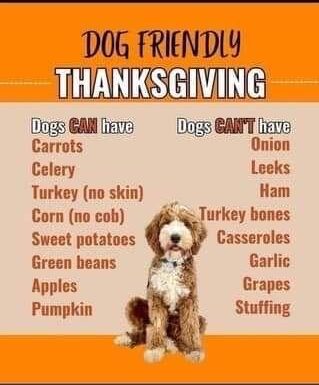Thanksgiving is a time for family, friends, and feasting. But let’s not forget our furry family members! While it’s tempting to share a piece of turkey or a taste of pumpkin pie, it’s important to be mindful of what foods are safe for our pets.

© 2020-2025 Golden Doodles Texas. All rights reserved